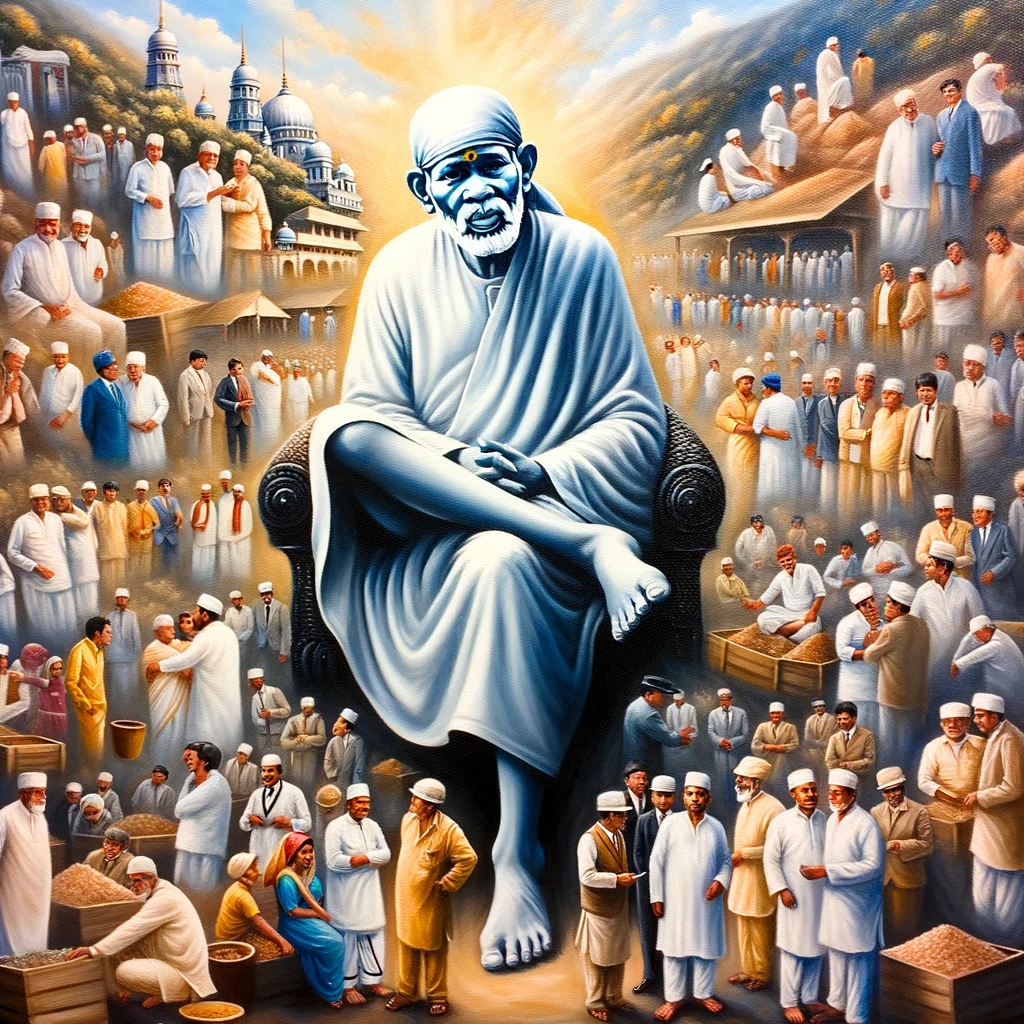
The teachings of Sai Baba, a revered saint who lived in the small town of Shirdi in the 19th century, have a timeless quality. One such teaching focuses on the concept of rewarding hard work—not just in terms of financial compensation but also in spiritual and emotional terms. His wisdom on this subject remains relevant today, as evidenced by real-life incidents that echo his profound philosophy. In this article, we’ll explore how Sai Baba’s teachings find resonance in contemporary experiences and continue to guide us in appreciating the multi-faceted value of labor.
The Sai Baba Perspective
Sai Baba of Shirdi believed in the intrinsic value of hard work combined with sincerity and devotion. His philosophy emphasized that rewards should not merely be proportionate to the apparent effort involved but should also account for the intangible aspects like sincerity, purity of intent, and devotion. In a particularly striking incident involving the construction of the Dwarkamai mosque, Sai Baba generously rewarded laborers for their hard work. When questioned about the disproportionately large reward for seemingly simple tasks, Sai Baba elucidated that the laborers were not just leveling grounds but were also deeply engrossed in spiritual chanting. This holistic approach to hard work and rewards sets the tone for how we can apply these teachings in various facets of our modern life.
Modern-Day Resonance: Two Incidents from My Experience
Incident 1: The Extra Mile in Apartment Management
A few months ago, I witnessed something that reminded me strongly of Sai Baba’s teachings. A member of our apartment management committee had commissioned some construction work. After the work was completed, he not only paid the agreed amount but also added something extra. The smiles that broke out among the construction workers were priceless. This was not merely a business transaction; it was a recognition of the workers’ sincerity and commitment.
Incident 2: Rewarding In-House Talent
A couple of years back, I was involved in the creation of a coffee table book intended for high-level dignitaries. The project required some exquisite calligraphy, and one of our own employees was highly skilled in that art form. Our honorable chairman insisted on giving this individual an advance payment for the work, despite him being an employee. It was a gesture that validated not just the labor but also the unique skill and artistry required for the task.
The Overarching Lesson
Both these incidents in my life echo Sai Baba’s wisdom that rewarding hard work involves a nuanced understanding of labor and effort. In the first experience, the extra pay wasn’t solely for the physical work—it was a tribute to the sincerity and commitment that the construction workers poured into their job. In the second, our chairman’s proactive recognition of in-house talent served as a wonderful reinforcement of Sai Baba’s teaching that labor should be evaluated holistically.
Conclusion
As the famed line from the movie “The Godfather” goes, “Great men are not born great, they grow great.” This sentiment echoes Sai Baba’s wisdom about hard work and its multi-dimensional rewards. The essence of his teaching encourages us to grow great by recognizing and rewarding hard work in a manner that transcends mere financial or material gains. It asks us to factor in emotional and spiritual dimensions, as well.
In the two incidents I shared, both the apartment management committee member and our honorable chairman embodied Sai Baba’s teachings in their actions. They saw beyond the apparent tasks and acknowledged the underlying sincerity, commitment, and skill, thereby elevating a simple act of remuneration into a profound, transformative gesture.
So, as we navigate through the complexities of modern life, let’s carry forward Sai Baba’s timeless wisdom by honoring hard work in its fullest sense—materially, emotionally, and spiritually. Doing so not only makes us better individuals but also allows us to contribute to a more compassionate and understanding world.
